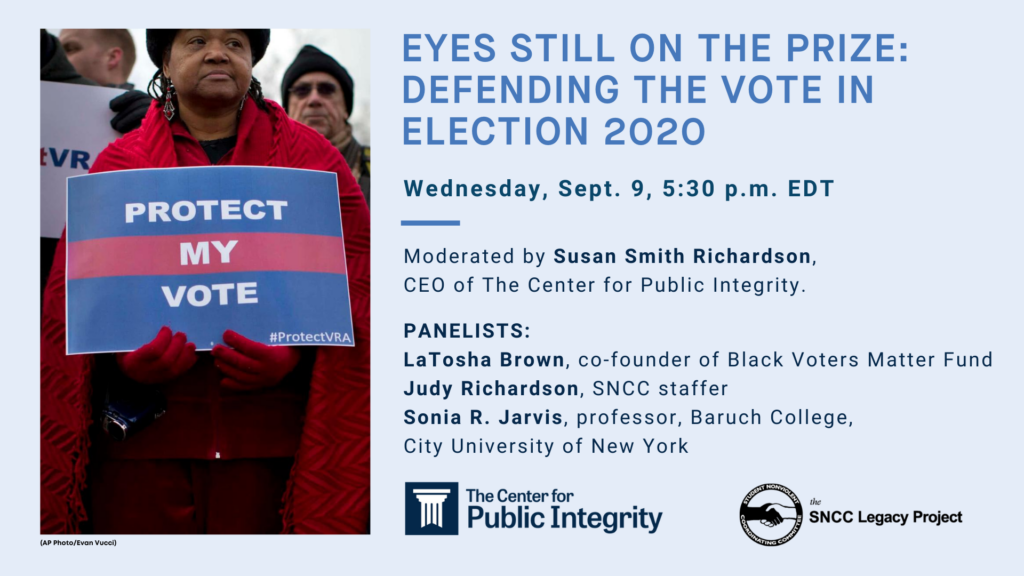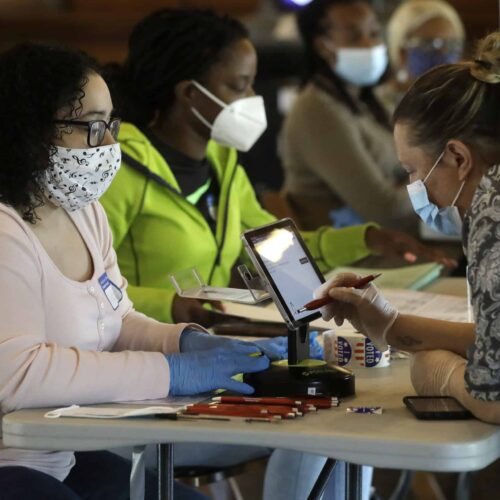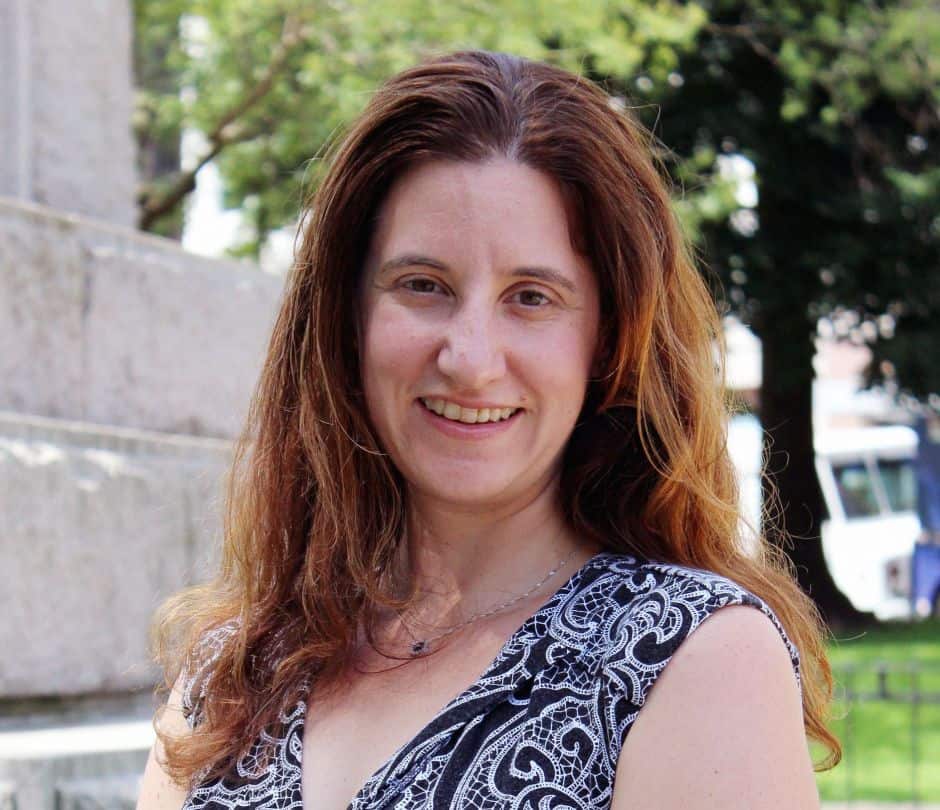Introduction
Note to readers: As you’ll notice with this edition, we’ve made some changes to the format of our weekly newsletter to bring you more timely original reporting and analysis from Public Integrity journalists on topics in which they’ve developed expertise through their investigations. As always, we’d love your feedback and your ideas about coverage.
— Matt DeRienzo, editor in chief, mderienzo@publicintegrity.org
LeBron James wants people to score points by working the polls. He’s not the only one.
More Than a Vote, a collective of athletes, including James, formed to oppose voter suppression, is launching a high-profile effort to recruit poll workers in Black communities in swing states. More Than a Vote’s initiative is a high-profile example of the many programs that have sprung up in recent weeks to recruit election workers for November as local officials reckon with a shortage accelerated by the COVID-19 pandemic.
“You could see it play out in the primary elections where many polling places had to be closed because there was a shortage of poll workers,” said Janell Byrd-Chichester, director of the Thurgood Marshall Institute of the NAACP Legal Defense Fund, which is partnering with More Than a Vote.
More than half the country’s poll workers for the 2016 presidential election were 61 or older, according to data tracked by the U.S. Election Assistance Commission. In some states, that number was far higher, a Center for Public Integrity analysis of U.S. EAC data for a story in May found.
Seniors are at higher risk of severe illness or death if they contract COVID-19, which led many stalwarts to decline to work elections this year. The shortage of election workers prompted reductions in in-person polling places during the primaries and contributed to obstacles for voters, including long lines and confusion. Election officials are hoping to avert similar problems during November’s high-stakes presidential election. The U.S. EAC declared Sept. 1 “National Poll Worker Recruitment Day.”

California Secretary of State Alex Padilla announced a partnershipwith Drag Out The Vote, a nonpartisan nonprofit that works with drag performers and advocates for increased voter access and engagement. The Poll Hero Project is seeking to recruit high school and college students to work the polls. “The Daily Show” has promotedPower the Polls. Many big companies, including Starbucks, are encouraging employees to work the polls, with employers such as sports teams and Old Navy offering paid time off to do so. Kentucky craft brewers are putting out the call for workers on beer labels.
Recruiting enough poll workers is always a struggle, said Sherry Poland, Hamilton County, Ohio’s, elections director, during a recent call about elections sponsored by the Bipartisan Policy Center, a Washington, D.C. think tank, and especially this year. Poland is assessing how many regular poll workers might be unavailable in November, and is recruiting 17-year-old high school students and working with companies willing to give employees a paid day off to work the polls.
The Ohio Supreme Court has agreed to allow lawyers to obtain needed continuing legal education credits in exchange for poll worker training, something other states are also doing. Accountants can get similar credit. The National Association of Secretaries of State and the National Association of State Election Directors are working with the American Bar Association on a national effort they’ve titled “Poll Worker, Esq.”
Despite the efforts, many places are still struggling to find enough people. In Maryland, for example, counties are consolidating neighborhood polling places into smaller numbers of vote centers, but are still struggling to find enough workers. In Macoupin County, Illinois, the clerk recently said he hopes to open all the county’s usual polling places, but it depends on the number of election workers. In Mississippi, one of just a few states that still requires an excuse to vote absentee, county supervisors can authorize extra hazard pay for poll workers, and several have done so. And in Los Angeles County, the nation’s largest voting jurisdiction, the county will invoke emergency powers to use county employees to staff the election.

We can’t do this work without your support.
Latest from Public Integrity
Workers with pre-existing conditions could file COVID-19 claims under ADA
More than 27 million workers suffer from medical conditions — including heart disease, diabetes and chronic kidney disease — that put them at increased risk of dying from COVID-19. Employers may be required by the Americans with Disabilities Act (ADA) to make reasonable accommodations to protect them in workplaces or allow them to work from home. From Public Integrity’s Alex Ellerbeck.
Analysis: Trump’s secret, fragmented and contradictory COVID-19 guidance
Public health experts in the White House have prepared detailed, state-by-state reports on the extent of the COVID-19 outbreak and recommendations on how to combat it, but they only reached the public after being obtained by Public Integrity. What happens when President Trump, his own staff, the CDC, governors and local health officials are all telling the public different things. From Public Integrity’s Liz Essley Whyte.
Climate-driven natural disasters are driving a mental health crisis
The trauma of repeated natural disasters, from hurricanes in Houston and South Carolina, to California wildfires, is taking a toll on the mental health of communities across the country. From Public Integrity’s Jamie Smith Hopkins and Columbia Journalism Investigations’ Dean Russell.
Others on inequality
- Black and Hispanic seniors hardest hit by COVID-19. For Americans 60 and older, COVID-19 is widespread and deadly. Its economic impact could also be devastating. From The Conversation.
- Black workers are more likely to be unemployed, less likely to get unemployment benefits. People in states with restrictive benefits are often deterred from applying for them. From Pro Publica.
- How a popular medical device encodes racial bias. Pulse oximeters measure darker skin differently, with potentially serious consequences. From Boston Review.
- Black newborns are more likely to die under the care of white doctors. A new study points to implicit bias in the care of infants. From Science News.
The right to know
Judge rules in Public Integrity’s fight for Ukraine documents
Last Friday, a federal judge issued a ruling in Public Integrity’s lawsuit over records related to President Trump’s suspension of military aid to Ukraine, for which the president was impeached. Public Integrity earlier won a court order that forced release of the documents in December, with many passages blacked out. In the latest decision, District Judge Colleen Kollar-Kotelly found that five of those redactions were not justified and ordered release of the blacked-out information. She upheld the rest of the agencies’ redactions.
In one email from OMB official Michael Duffey announcing that he was about to lift the suspension, the redacted passage “reflects that a decision had previously been made by the President,” Judge Kollar-Kotelly said. That email was in three different threads in the released documents. In January, Just Security obtained an unredacted copy of that email and other documents and reported that Duffey, asked why the hold was being lifted, replied, “Not exactly clear but president made the decision to go. Will fill you in when I get details.” That appears to be one of the redacted passages that the court has ordered to be released by Sept. 8.
— Peter Newbatt Smith
Read more in Inside Public Integrity
Watchdog newsletter
Words matter: Was the attack on the Capitol a rally, protest or insurrection?
The question remains how history will record the events that resulted in mayhem at the U.S. Capitol.


Join the conversation
Show Comments